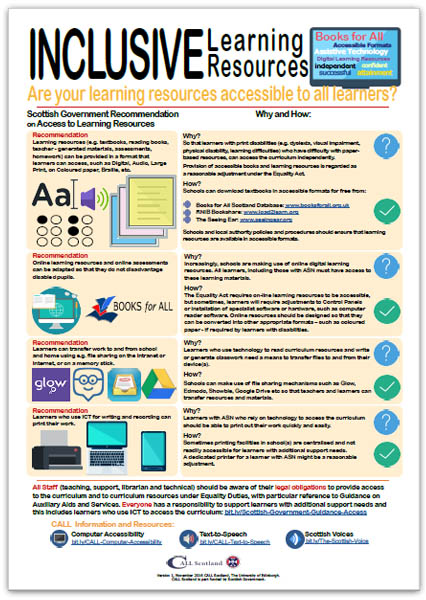Details
A3 sized PDF poster - revision 1.0, published 2016
Description
Ensuring that every child achieves the highest standards in literacy and numeracy, that every child has the same opportunity to succeed are key priorities of the National Improvement Framework.
Along with information on assistive technology, the Government has also provided guidance to ensure that learners with additional support needs can access curriculum materials. Moreover, the Equality Act requires that learning and teaching resources must be accessible to all learners.
This means that learning resources such as textbooks, reading books, worksheets, teacher generated materials such as assessments, homework etc. must be available in a format that learners can access, such as digital, large print, coloured paper or overlays (including computer overlays), audio, Braille and other accessible formats.
This infograph highlights both the government's guidance and provides helpful 'how to' support, so everyone is meeting their legal requirements.
This poster is designed to be printed in A3 and displayed along with the 'Are you Meeting Your Legal Requirements for Computer Accessibility?' infograph.
Icons used in this poster are designed by Flaticon



Our social media sites - YouTube, Twitter and Facebook